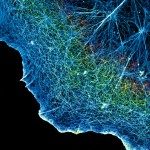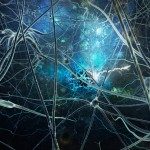Lien vers Pubmed [PMID] – 36623998
Lien DOI – 10.1016/j.tcb.2022.11.011
Trends Cell Biol 2023 Jul; 33(7): 538-554
Modern drug discovery approaches often use high-content imaging to systematically study the effect on cells of large libraries of chemical compounds. By automatically screening thousands or millions of images to identify specific drug-induced cellular phenotypes, for example, altered cellular morphology, these approaches can reveal ‘hit’ compounds offering therapeutic promise. In the past few years, artificial intelligence (AI) methods based on deep learning (DL) [a family of machine learning (ML) techniques] have disrupted virtually all image analysis tasks, from image classification to segmentation. These powerful methods also promise to impact drug discovery by accelerating the identification of effective drugs and their modes of action. In this review, we highlight applications and adaptations of ML, especially DL methods for cell-based phenotypic drug discovery (PDD).




